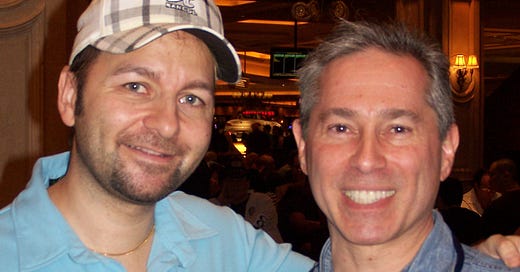Last week I was in a mediation on a business litigation. My company is the plaintiff. A very large corporation is the defendant. We attempted to reach a settlement by hiring a mediator. I was sure we wouldn't agree—it's too early—but I wanted to see where the Defendant was thinking. We weren't even close.
The mediator was an experienced lawyer who shuttled between rooms with offers. I believe he was applying as much effort on the other party to raise their offer as he was on me to lower mine. At least I hope so, because he was applying a lot of pressure on me. I didn’t budge much. The other side didn’t either.
The mediator liked aphorisms and analogies. He particularly liked to quote Mark Twain: “It ain’t what you don’t know that gets you into trouble, it’s what you know for sure that just ain’t so.” His arguments got more… well… condescending as we got to the last hour of seven, and I refused to lower my demand. By the end, he said I was a really smart guy, but I didn’t know everything. That I should listen to the advice of others who have more experience. That Einstein was a genius but didn’t know much about business litigation. That I was making the most foolish decision of my life and that I would regret it. A lot. For a long time.
I mostly listened quietly and said nothing until he finished his long soliloquy, and I still held my ground. There were two particular times when I did speak up, but I realized it didn’t help my cause any, even if it felt good. One time he said, “You wouldn’t go to your doctor and tell them how to cure you, you’d do what they said because they’re the experts.” I responded how my wife Carrie had gone to specialists for decades for her migraines and I was the one who actually cured her. I put her on a strict elimination diet until we found the food that triggered them—onions. She is now almost free of migraines.
He also brought up poker, which was not smart on his part. He talked about betting everything, hoping for the royal flush. It’s just not a smart thing to do, he said. It reminded me of my very first tournament in Las Vegas. I was at the Republican Jewish Coalition Annual Meeting in Las Vegas. This was before I started playing in any serious games, only home games with friends. Two poker superstars, Daniel Negreanu (AKA “Kid Poker”) and Barry Greenstein were invited to play. Before the tournament, we were all taking pictures with them, when I half-jokingly asked Negreanu for a tip to win the tournament. I was surprised when he pulled me aside and furtively asked, “Do you want to go as far as you can, or do you really want to win.” I looked at him blankly for a minute. I said, “I want to win.” He said, “When your stack is less than 10 big blinds, you’ve got to shove.” I thought I’d had just received some secret, insider advice. It turns out that every regular tournament player knows this. But I didn’t. So when my stack got low, I waited for a decent hand, and shoved my entire stack into the middle. And it actually worked! I ended up with the first tournament win of my career, beating the two superstars and everyone else. To this day, it’s one of the most exciting days of my life and my most thrilling tournament win ever.
I consider myself a great business negotiator. I’m not good at selling—I really wish I was—but when someone decides to do a deal, I’m great at negotiating the price. I’ve been an expert on 250 litigations, most of which involve negotiations gone bad. I’ve been hired as a consultant over 500 times, which means I’ve negotiated over 500 contracts. Most deals are simple, one-time deals akin to a cash poker game where each hand is independent of every other hand. You either win or lose and move on to the next deal. However, some deals, like the one that was being mediated last week, was only one hand in a long tournament. The outcome of that one hand is much less important than the long-term strategy. Had I accepted the other party’s offer, even if I could get them to bump it up a bit, I would have a small win that actually wouldn’t even cover my expenses to date. Instead, I decided to shove, because I want to win much more in the long term. Or at least have the excitement of trying.
I’ve had people advise me throughout my life to give up on risky ventures, whether it’s poker or some startup businesses. But they always have a different perspective than me. As tightrope walker Karl Wallenda said, shortly before falling to his death, “Walking the wire is life, all the rest is just waiting.” I get bored by the waiting. I enjoy the excitement of walking that line. Especially at this time in my life, I don’t need a quick payoff. I’m willing to shove. I’m willing to go for a great, profitable, exciting, all-out win. Or nothing at all.





